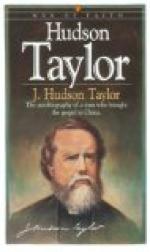[Illustration: POUGHKEEPSIE BRIDGE]
[Illustration: TROPHY POINT, WEST POINT]
[Illustration: OLD CRO’ NEST AND STORM KING]
[Illustration: POLLIPEL’S ISLAND AND MOUNT TAURUS]
[Illustration: THE CATSKILLS FROM THE HUDSON]
[Illustration: NORTHERN GATE OF HIGHLANDS]
* * *
And from their leaguering legions thick
and vast
The galling hail-shot in fierce volley
falls,
While quick, from cloud to cloud, darts
o’er the levin
The flash that fires the batteries of
heaven!
Knickerbocker Magazine.
* * *
[Illustration: MORNING VIEW AT BLUE POINT.]
We now see =Blue Point=, on the west bank; and, in every direction, enjoy the finest views. The scenery seems to stand, in character, between the sublimity of the Highlands and the tranquil, dreamy repose of the Tappan Zee. It is said that under the shadow of these hills was the favorite anchorage of—
=The Storm Ship=, one of our oldest and most reliable legends. The story runs somewhat as follows: Years ago, when New York was a village—a mere cluster of houses on the point now known as the Battery—when the Bowery was the farm of Peter Stuyvesant, and the Old Dutch Church on Nassau Street (which also long since disappeared), was considered the country—when communication with the old world was semi-yearly instead of semi-weekly or daily—say two hundred years ago—the whole town one evening was put into great commotion by the fact that a ship was coming up the bay.
* * *
See you beneath yon sky so dark
Fast gliding along a gloomy bark:—
By skeleton shapes her sails are furled,
And the hand that steers is not of this
world.
Legend of the Storm Ship.
* * *
She approached the Battery within hailing distance, and then, sailing against both wind and tide, turned aside and passed up the Hudson. Week after week and month after month elapsed, but she never returned; and whenever a storm came down on Haverstraw Bay or Tappan Zee, it is said that she could be seen careening over the waste; and, in the midst of the turmoil, you could hear the captain giving orders, in good Low Dutch; but when the weather was pleasant, her favorite anchorage was among the shadows of the picturesque hills, on the eastern bank, a few miles above the Highlands. It was thought by some to be Hendrick Hudson and his crew of the “Half Moon,” who, it was well known, had once run aground in the upper part of the river, seeking a northwest passage to China; and people who live in this vicinity still insist that under the calm harvest moon and the pleasant nights of September, they see her under the bluff of Blue Point, all in deep shadow, save her topsails glittering in the moonlight.




